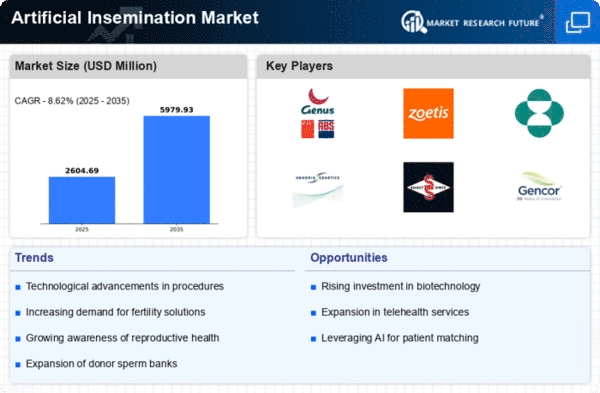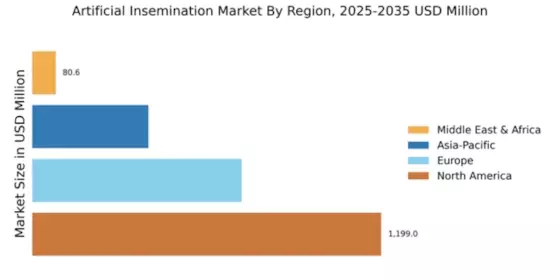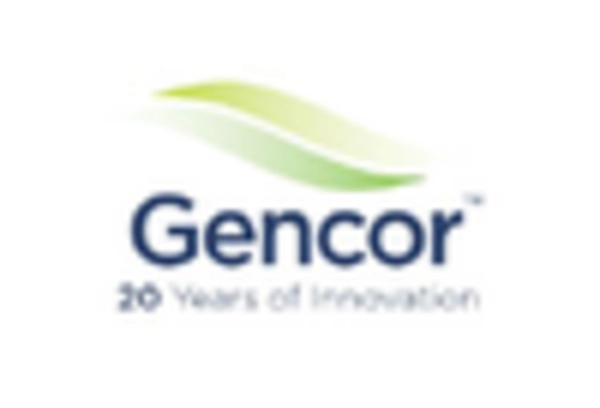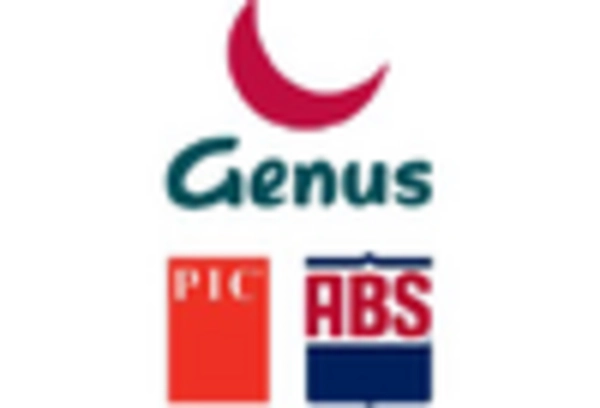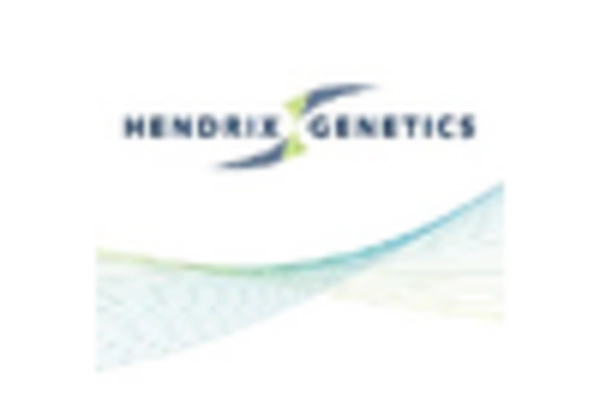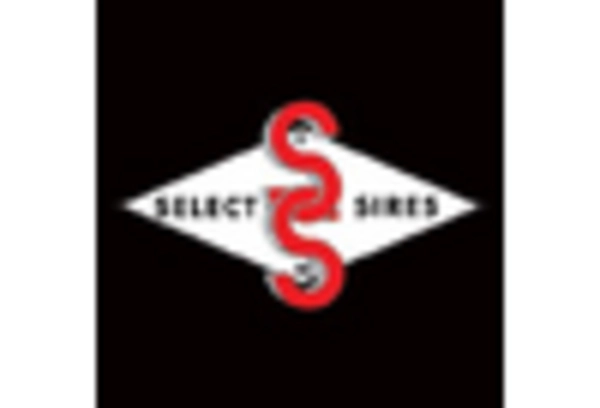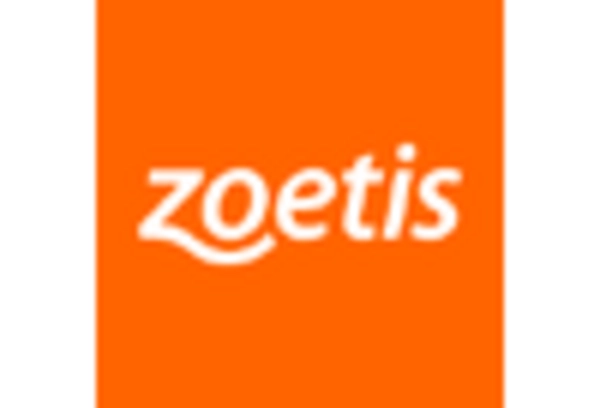- Q2 2024: CooperSurgical Launches New ARTlab™ Laboratory Management Platform for Fertility Clinics CooperSurgical announced the launch of ARTlab™, a new laboratory management platform designed to streamline workflows and improve data management in fertility clinics, supporting artificial insemination and other assisted reproductive technologies.
- Q2 2024: Hamilton Thorne Announces Acquisition of IVFtech ApS Hamilton Thorne, a leading provider of precision instruments for fertility clinics, announced the acquisition of IVFtech ApS, a Danish manufacturer of laminar flow workstations and related products for artificial insemination and IVF laboratories.
- Q2 2024: Fujifilm Irvine Scientific Opens New Manufacturing Facility in Tilburg, Netherlands Fujifilm Irvine Scientific opened a new manufacturing facility in the Netherlands to expand production of cell culture media used in artificial insemination and other assisted reproductive technologies, aiming to meet growing European demand.
- Q3 2024: Vitrolife Appoints New CEO to Drive Growth in Fertility Solutions Vitrolife, a global leader in fertility treatment products including artificial insemination media, announced the appointment of a new CEO to accelerate its international expansion and product innovation.
- Q3 2024: Cook Medical Launches Next-Generation Insemination Catheter Cook Medical introduced a next-generation insemination catheter designed to improve patient comfort and clinical outcomes in artificial insemination procedures.
- Q4 2024: Genus plc Announces Strategic Partnership with CRV for Bovine Artificial Insemination Genus plc, a leader in animal genetics, announced a strategic partnership with CRV to jointly develop and distribute advanced bovine artificial insemination solutions in Europe.
- Q4 2024: Pride Angel Launches Online Platform for Home Artificial Insemination Kits Pride Angel launched a new online platform offering home artificial insemination kits, aiming to increase accessibility and privacy for individuals and couples seeking fertility solutions.
- Q1 2025: Medtronic Receives CE Mark for Automated Artificial Insemination Device Medtronic announced it has received CE Mark approval for its new automated artificial insemination device, enabling commercial launch in the European Union.
- Q1 2025: Bayer AG Invests in Fertility Tech Startup Focused on AI-Driven Insemination Bayer AG announced a strategic investment in a fertility technology startup developing AI-driven solutions for optimizing artificial insemination outcomes.
- Q2 2025: JLG Enterprises, Inc. Expands Manufacturing Capacity for Artificial Insemination Equipment JLG Enterprises, Inc. announced the expansion of its manufacturing facility to increase production of artificial insemination equipment, citing rising demand from fertility clinics and animal breeding centers.
- Q2 2025: Hi-Tech Solutions Secures Series B Funding to Scale Artificial Insemination Technologies Hi-Tech Solutions, a provider of reproductive health technologies, secured Series B funding to accelerate the development and commercialization of its artificial insemination products.
- Q2 2025: Cook Medical Receives FDA Clearance for New Artificial Insemination Syringe Cook Medical received FDA clearance for its new artificial insemination syringe, allowing for immediate commercialization in the United States.
Artificial Insemination Market Trends
Rising infertility rates and increased awareness among individuals about alternative reproductive treatments are two major factors influencing the artificial insemination market. . Furthermore, governments in many countries have legalized same-sex marriage and provided insurance coverage to civil unions for artificial insemination procedures, fueling the market growth. Aside from that, the growing population and increasing demand for animal-based protein drive the demand for artificial insemination in domestic livestock animals. Improving veterinary services and rising animal healthcare expenditure drive market growth. Furthermore, the leading players are forming strategic alliances to expand their portfolio of animal genetics and strengthen their position in various markets.
Market Drivers
- Rising infertility issues in people to aid the market growth
Infertility is one of the most serious and widespread issues affecting today's youth worldwide. The female preference for pregnancy and the gradual increase in the number of infertile couples who require pregnancy assistance can be attributed to market growth. The age of women, the quality of their eggs, and women in their late 30s are expected to increase demand for artificial insemination. Furthermore, infertility affects over 20 million women, according to the National Women's Health Resource Center.
Total fertility is expected to fall from 2.43 to 2.39 children per woman between 2020 and 2030, according to the 2017 United Nations World Population Prospects report. The rising prevalence of infertility among the population drives the market forward.
Market Restraints:
- Most countries have strict regulations in place regarding who is eligible to receive fertility treatments, which is stifling market growth
Most countries' stringent regulations governing who is eligible to receive fertility treatments are impeding the growth of the market. Italy and France, for example, prohibit lesbian couples and single women from using artificial insemination. Italy and Austria are among the countries that have banned all sperm and egg donations for IVF. Norway and Germany prohibit egg donation but permit sperm donation.
Market Opportunities:
- Insurance companies covering artificial insemination treatment under medical coverage
Many insurance companies now cover artificial insemination as a medical procedure. These initiatives assist patients in fighting infertility and creating opportunities in the insurance industry. Moreover, Governments and international organizations develop policies and establish new institutions to improve medical connectivity, such as the Assisted Reproductive Technology (ART) Regulation Bill, the Nation Public Action Plan, the National Family Policy, and other initiatives. According to the UN Security Council, 84% of the country supports the policy that directly and indirectly affects the country's infertility.
Artificial Insemination Market Segment Insights
Artificial Insemination Type Insights
The market segments of artificial insemination, based on type, is intrauterine, intracervical, and intratubal. The intrauterine segment is expected exhibit a rapid CAGR and hold the largest market share in the artificial insemination market growth in 2021. This insemination method is the most used to treat infertility because it produces the highest pregnancy rate. It is also a non-invasive procedure. During the washing process, prostaglandins, pathogenic agents, antigenic proteins, nonmotile spermatozoa, immature germ cells, and other contaminants are removed, resulting in high-quality sperm.
These are the primary benefits that will drive the intrauterine segment's growth in the market during the forecast period. The intravaginal portion is expected to be the second largest (IVI). IVI can be performed in a fertility clinic or home, which is especially beneficial for surrogacy and donor insemination.
Artificial Insemination End-User Insights


